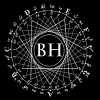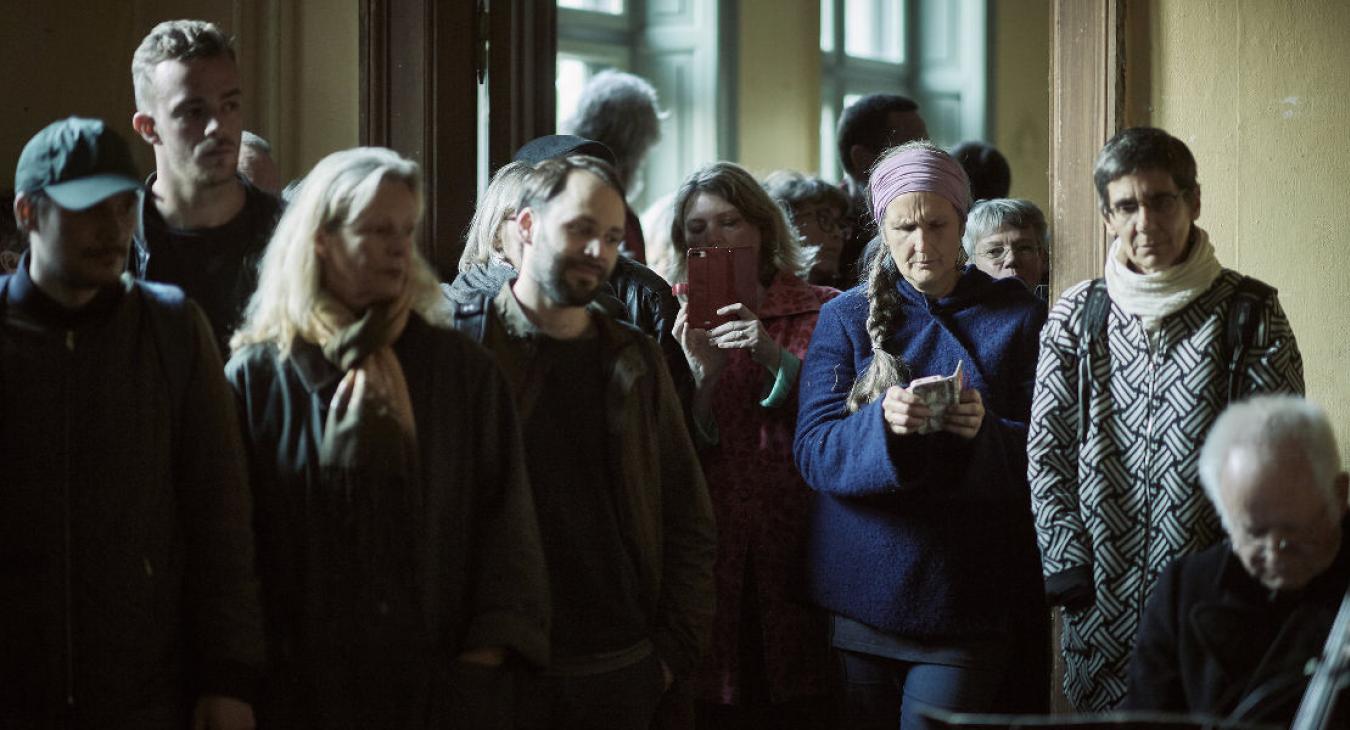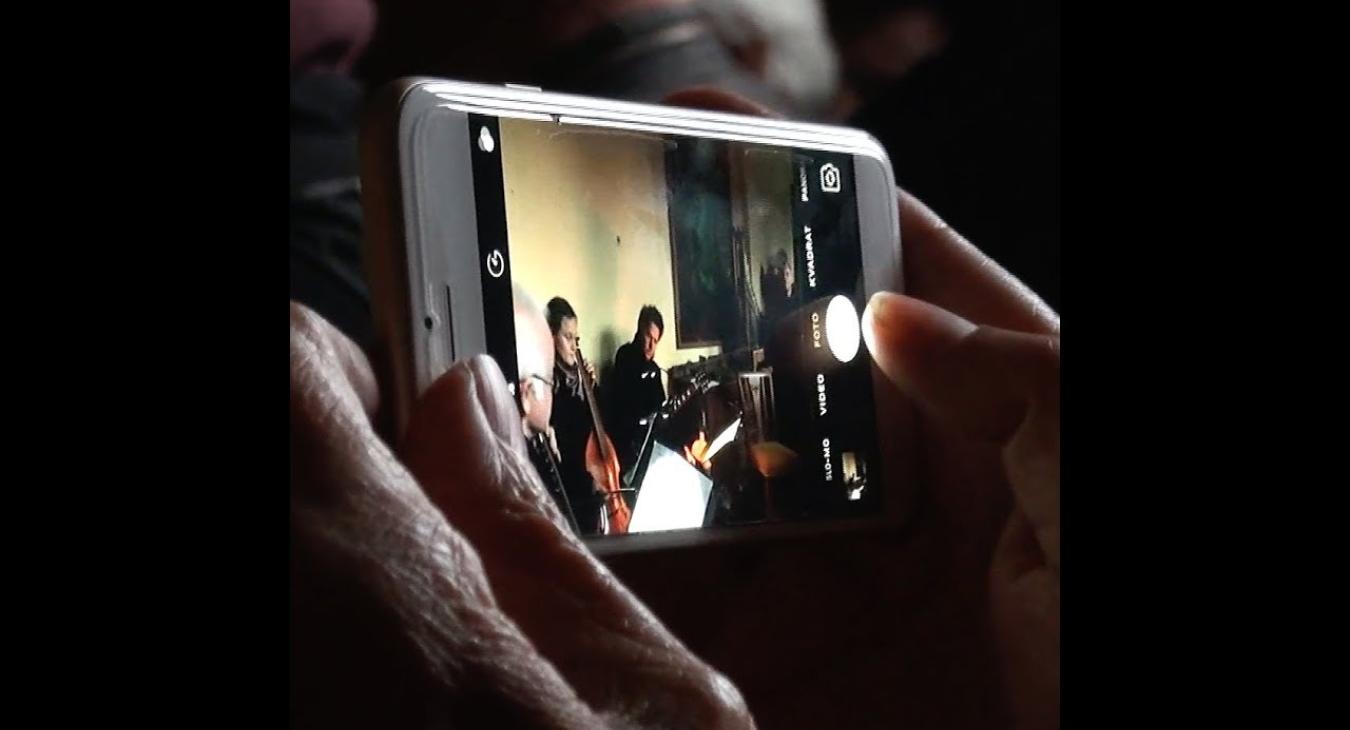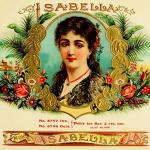The third (or fourth) act of the corona pandemic is coming to an end. Now the question arises: What course do we set from here in a new cultural reality?
NOT JUST MUSIC
For most of us there is more to consuming music than experiencing art! Listening to music, not least in the context of a concert, is a social engaging and socializing activity. An activity that helps to define the concertgoer's identity; we, the audience as well as musicians, become part of a community. Music creates relationships; among the audience, among performing musicians and among the audience and performing musicians. Music relates to the social habits and norms of both audiences and artists. The English musicologist Christoffer Small * believed that music should not be considered as an object, but as an action, and therefore invented the concept of 'musicking'. Musicking is the active act, where both musicians and the audience are involved, and where the objective value of music is part of a complex social game.
Listening to music in the context of a concert, is a social and socializing activity.
Who are you, or who are you identified with when you attend a concert at certain venues? What type of music consumer are you if you frequent the local jazz house, or go to a church concert? Who are you if you buy a ticket to the Funen Opera? The point is that what, where, with whom and how one listens helps to establish one's self-image and self-understanding.
THE DOWNSIDE
It's basically a good thing, and at least a fact, that music creates social movements around it. But since music is closely linked to identity, there is also a downside. A music genre often gets stuck with a social label that has nothing to do with the music itself. A given music genre often finds it difficult to move freely between different audience segments, whether they are age-specific or culturally/socially defined. For example, it is difficult for a newly written opera to reach other audience segments than precisely the audience that is familiar with opera. You are what you hear! The so-called "classical music" rarely reaches beyond the audience it seems to be defined for in advance.
THE NEW REALITY
This side of the socializing effect of music has long been a challenge for narrow genres such as, for example, new and early classical music and jazz. But in the new post-corona reality, the problem of the small audience segments manifests itself in earnest. Former and future restrictions will, at least for a long time to come, challenge the narrow genres that largely survive on small and small concert events; The concerts are often organized by music and cultural associations or church communities, and almost always by volunteers.
Music creates relationships; among the audience, and among the audience and performing musicians.
For, will we maintain an interest in 'musicking' and the social aspect of our music consumption? The community life and the large number of 'small concerts' that are arranged by enthusiasts all year round means 'a world', both for musicians and large parts of the audience, for whom meeting other people is an essential part of the music experience. A corona pandemic do not change that. But will we continue our musicking, business as usual, if it could endanger others, and perhaps jeopardize our own health? The answer to that question is exactly what many musicians, organizers and audiences are waiting for right now. We still don't know the answer. But perhaps we should ask another question, a more creative one - Is it possible to listen to music in a social engaging context, without being physically present, as we've been doing up til now?
A VIRTUAL COMMUNITY LIFE
Can one imagine community life, with all the cultural activities that arise from it, go online, completely or in parts? Could digital structures be build, where audiences and artists meet online, play and listen, and socialize? That is, kind of online musicking? Social media has already gone part of the way; On Facebook, Twitter and Instagram, we meet around all sorts of issues. We join groups and follow activities we find interesting. What's more; On social media, we also meet a large number of people we, for various reasons, would not otherwise be in physical contact with.
We must learn to convey the essence of a concert online.
Could one imagine a wide and varied audience, on the same platform, listening to several, different music genres? Could one create social networks across music genres where the music will be on its own, on neutral ground so to speak? Network where you are together around the essence and intention of music instead of genre? Then the question from the previous section should instead be reformulated: - Can we handle the limitations of the post-corona reality in a creative way, and convey the narrow music genres to a wider audience ...? (I leave the question for a few seconds :)
ONLINE VERSUS LIVE
We have all the accessories. There are several platforms that can handle both graphics, text, sound and live streaming of concerts. Facebook is just one of them.... But stop right there!! Live streaming can be cripplingly boring, even though the musicians and music are top notch! Here again, it's a good idea to have Christoffer Small's concept of musicking in mind; The music should not stand alone. The music as a concert form must live and breathe in a social engaging context, even when it is online! Concert music has never stood on its own. The traditional physical concert forms have been created and shaped in a social context over decades, in some cases, through centuries. An exciting and engaging virtual concert form can only be created through new experiences, trial and error!. We must learn to convey concert music online. Develop the communication between musicians and the online audience so that it becomes exciting and functional. We should not just find a temporary replacement for our pre-corona concert forms. We need to create some completely new forms of communication. Such a task, such a quest, will require both creativity and courage! We must find that together; the artists, the audience and the cultural institutions.
EPILOG
These considerations are written with music in mind because that is where my heart beats the loudest! :) Nevertheless, the considerations are general and apply well to many art forms, where socializing is part of the artistic activity. So let us all, artists, audiences and institutions, look ahead and jointly develop modern, attractive ways to communicate, where the arts bind us together in new and contemporary ways. It does not have to be worse than what we have to leave behind!
*Christoffer Small - Musicking: The Meanings of Performing and Listening (Music/Culture)





